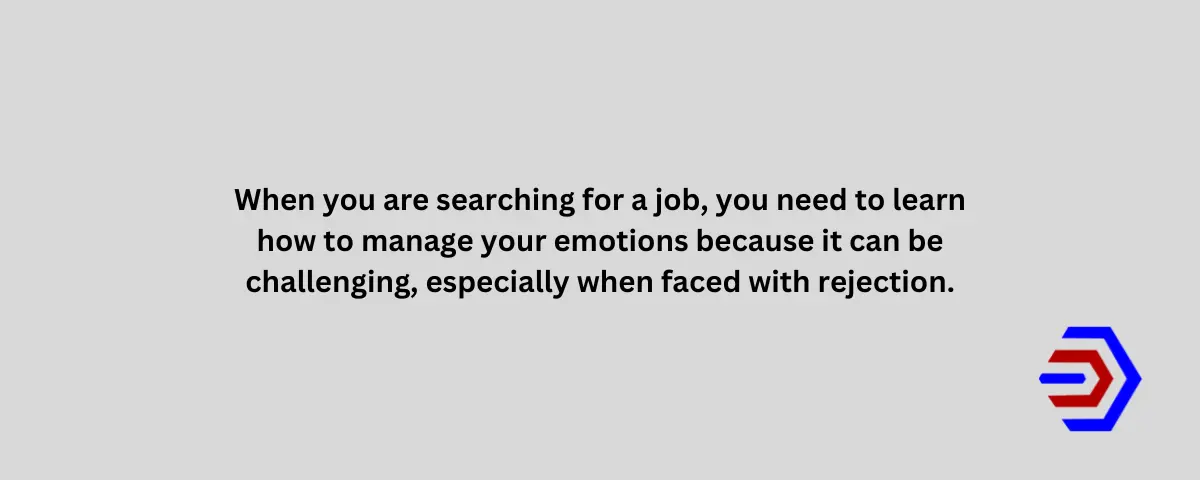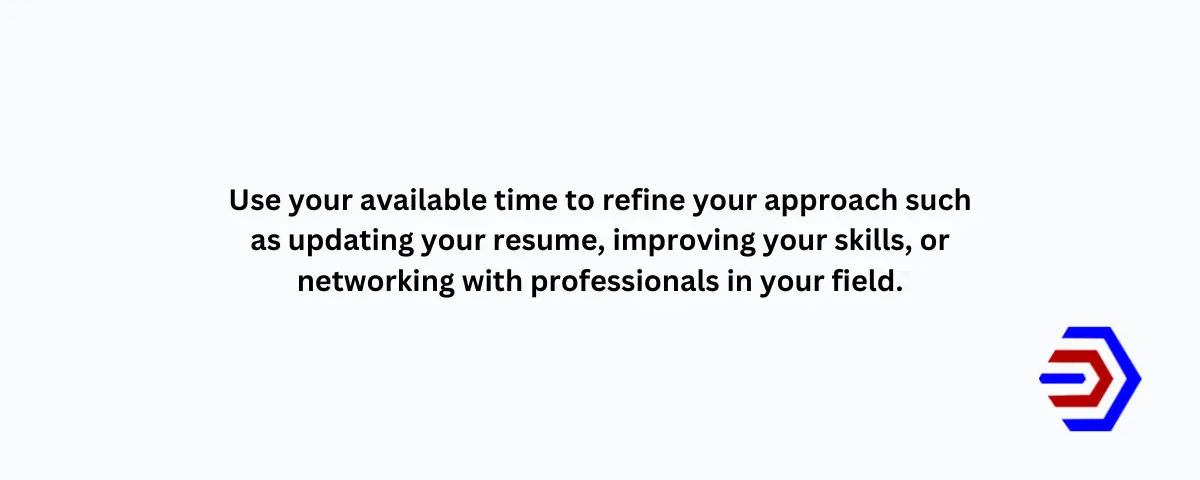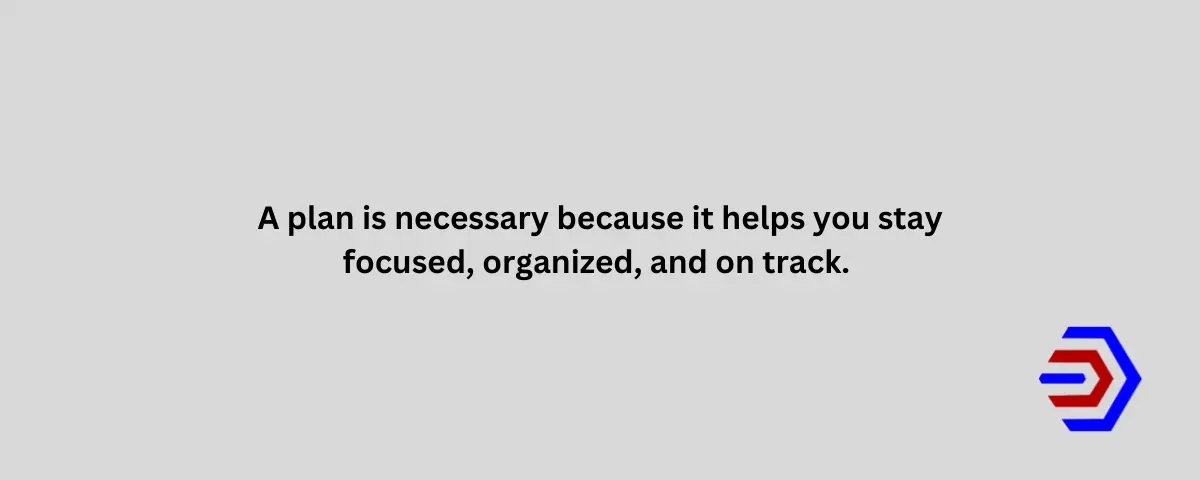Job rejection is something many of us face during our careers. It can feel like a punch to the gut, making you question your skills, your worth, and whether you’ll ever find the right job.
When you get that rejection email or phone call, it’s normal to feel disappointed, frustrated, and even doubt yourself. I know how tough this can be, especially after putting so much effort into applications and interviews.
But it’s important to remember that rejection doesn’t define you or your future. So instead of getting stuck in negative feelings, you can use this experience as a chance to grow and move closer to better opportunities.
In this article, we’ll look at some simple strategies to help you cope with rejection and use it as motivation for your next opportunity.
What is Job Rejection
Job rejection refers to the situation where a candidate is not selected for a job position after going through the hiring process. This can happen at any stage, whether during the initial application review, interviews, or final selection. It’s a common experience that many job seekers face, and while it can be disheartening, it’s important to remember that rejection is a normal part of the job search journey.
10 Ways to Handle a Job Rejection
Job rejections are a normal part of the job search, but they can challenge your confidence. Here are 10 tips to help you use feedback from rejections to improve your job search:
Manage Your Emotions

Get 50% Discount to Master ALL Aspects of Digital Marketing That Can Earn You $2,500 - $5,000 a month (Even if you are a complete beginner!)
Our students that intentionally implement what they learn from our digital marketing course make back the entire course fee within a single month or more after completing our course because our course gives them many income generating options with unlimited earning potential with no age or location barrier. The best part is no technical skills are required.
An opportunity to change your lifestyle and make money working from anywhere in the world. The results our students get from our digital marketing course prove this could be applied to any market or country and that it is designed for any skill level and work background.
*By signing up, you agree to our privacy policy and terms of service.
When you are searching for a job, you need to learn how to manage your emotions because it can be challenging, especially when faced with rejection.
You will feel disappointed or discouraged, but it’s important to acknowledge these feelings without letting them take over. Allow yourself to feel upset for a moment, then shift your focus to the positives. Try to remind yourself of your strengths and the skills you bring to the table.
If you feel like talking to someone, reach out to friends or family as sharing your feelings and experiences can help lighten the emotional load.
Additionally, when you have something going through your mind, you can also try journaling your thoughts. Writing about your experiences can help you reflect on what you’ve learned from each application and get ready for the next opportunity.
Rejection Is Not Feedback

When you are applying for a job and you receive a rejection letter, it can feel personal, but it often has more to do with the specific needs of the employer or the competitive nature of the job market.
So you need to remember that rejection is not a reflection of your worth or abilities, but rather a sign that the opportunity just wasn’t the right fit. You can see it as a natural part of the job search process and each application is a step toward finding the right fit for you.
When you are less busy, use your available time to refine your approach such as updating your resume, improving your skills, or networking with professionals in your field.
For instance, if you are a writer and are interested in becoming a content marketer, you still need to learn some skills to make the transition successfully. You might need to better understand SEO, social media strategies, and how to analyze content performance.
One of the best places to learn these skills is at the Digital Marketing Skills Institute. We offer a comprehensive course that covers everything from SEO basics to advanced content marketing strategies, helping you build the knowledge and confidence to succeed in your new role.
Also, I want you to keep in mind that every “no” brings you closer to a “yes.” so stay positive and keep applying, your dream job is out there.
Ask for Feedback
When you’re rejected for a job, it can help to ask the employer for feedback. Many companies like candidates who are open to learning and improving. If you get a rejection email, you can reply with a polite thank you and ask if they can share any thoughts on your application or interview.
This feedback can be very useful and may highlight areas where you can improve your skills or help you better understand what employers are looking for. Even if they don’t give you detailed feedback, asking shows that you’re committed to growing and improving.
Subject: Request for Feedback on My Application
Dear [Employer’s Name or Hiring Manager’s Name],
I hope this message finds you well. I wanted to take a moment to thank you for the opportunity to interview for the [Job Title] position at [Company Name]. While I am disappointed to learn that I was not selected, I truly appreciate the chance to connect with your team and learn more about the exciting work being done at [Company].
If possible, I would be grateful for any feedback you could share regarding my application or interview performance. Understanding your perspective would be incredibly valuable as I continue to refine my skills and approach in my job search.
Thank you once again for your time and consideration. I wish you and the team at [Company Name] all the best, and I hope our paths may cross again in the future.
Warm regards,
[Your Name]
When you send out a mail request for feedback on your application or the reason why you were rejected, it shows that you’re open to constructive criticism and eager to improve.
Focus on Your Strengths
As a job seeker, you need to take a moment to reflect on what makes you unique whether it’s your creativity, analytical skills, or ability to work well in teams.
Start by writing down some of your key accomplishments, both personal and professional, and the skills you’ve developed over time through your education, previous roles, or volunteer experiences. This will help you identify areas of strength and also give you concrete examples to highlight when you’re applying for jobs or networking with potential employers.
For example, if you are a social media manager, you might note accomplishments like growing a brand’s online following, increasing engagement rates, or creating successful campaigns.
You could also mention your proficiency with analytics tools, your creativity in content creation, or your ability to manage multiple projects under tight deadlines. These are all skills that could make you stand out to employers looking for a well-rounded candidate.
This exercise will boost your confidence and also help you remember the value you bring to potential employers. It would be best if you also used this newfound clarity to tailor your applications, highlighting these strengths in your resume and interviews.
When concentrating on what you do best, you’ll present yourself more effectively and increase your chances of finding the right opportunity that aligns with your talents.
Keep Learning and Developing
After receiving feedback from an employer or a recruiter, let it be a powerful motivator to invest in your personal and professional growth.
From the feedback you received, check what the employer is searching for that you are not good at and use your time to acquire the skills and knowledge in your field.
For instance, if you are a digital marketing professional, you can register for an online digital marketing course to improve your skills or earn certifications that are relevant to your career goals.
Additionally, you need to stay updated on industry trends by reading articles, joining webinars, or participating in networking events. This will improve the quality of your resume and bring you closer to landing the job that’s right for you.
When you continue to learn and develop your skills, you’ll become a more competitive candidate and increase your confidence.
Keep Track of Your Daily Accomplishments

There is a saying that “You can’t track what you don’t record”. so you need to always just down your steps or application process.
During your job search, it’s crucial to keep track of your daily accomplishments, no matter how small they may seem.
For instance, If you submit an application, attend a networking event, or complete a course, jot it down in a journal or a digital document. This practice will not only boost your confidence but also help you maintain a positive mindset.
When you reflect on any of these achievements it can remind you of your progress and determination, especially during challenging times.
So consider reviewing your accomplishments as it can reignite your motivation and show you that you are actively working toward your goals.
Tap into Your Network for Constructive Criticism
Your connection is your network, and the people in your network will play a crucial role in your job search and career growth.
When faced with rejection, don’t hesitate to reach out to your network for feedback. Friends, family, or former colleagues are your best bet if you want to get valuable insights into your job search strategy, resume, or interview performance.
So when you are searching for job opportunities, share your experiences with them and ask for their honest opinion as they may call your attention to see things you might have missed.
Feedback does not need to be harsh or aggressive always, your network can give you constructive criticism about what you are doing right and what you are doing wrong.
People in your network often want to support you, and their advice can guide you in making improvements. So seek their feedback in some of the areas relating to your job search to improve your chances of success in future applications.
Have a Plan

When you are searching for a job, you need to have a clear plan on how you want to stay motivated and achieve success during your job search.
A plan is necessary because it helps you stay focused, organized, and on track. It should outline your goals, such as the types of roles you’re aiming for, the industries you want to work in, and the companies you’re interested in.
A plan also includes setting a schedule for your job search, such as how many applications you want to submit each week, how often you’ll update your resume or LinkedIn profile, and when you’ll follow up on applications.
When you set the goals you want to achieve, you need to break down your tasks into manageable steps to avoid feeling overwhelmed. This structured approach will keep you focused and give you a sense of direction and purpose.
When rejection occurs, refer back to your plan and remind yourself of your goals. This will help you stay motivated and resilient, knowing that each step you take brings you closer to the right opportunity.
Job Opportunities Are Everywhere
A great mindset to have during your job search is believing that there are plenty of opportunities out there. It’s normal to feel discouraged after a rejection, but remember the job market is huge, with many positions waiting to be filled.
Each rejection is helping you get closer to finding a job that suits your skills and passions. So instead of seeing setbacks as a failure, think of them as chances to try new paths.
For example, you can sign up for job platforms like Indeed, LinkedIn, MyJobMag, or Fuzu to find job openings in your field.
While using these platforms, be open to considering different roles, industries, or even locations you hadn’t thought about before. This will increase your chances of finding a job that’s a better fit for you.
When you believe there are plenty of opportunities out there, you will stay positive and motivated to keep looking until you find the right job.
Process Your Emotions and Keep Going
After experiencing various rejections during your job search, it can be tough to maintain your motivation and self-confidence, and it’s okay to take some time to feel upset about the opportunity you missed.
So allow yourself to feel disappointed for a while as it is part of the healing process. Once you’ve processed your feelings, it’s time to shift your focus and move forward.
Think about what you can learn from the experience and how you can do better next time. Many successful professionals have faced numerous rejections before landing their ideal jobs.
When you reframe your perspective and view each rejection as a learning experience, you can build resilience and develop a more positive outlook.
To move forward, you need to set new goals, update your resume, or practice your interview skills. These steps can help you get closer to finding the right job for you.
Conclusion
Dealing with job rejection can be tough, but it’s also a chance to grow and learn about yourself. I want you to remember, that every “no” gets you closer to the right “yes.”
So you need to stay positive, reach out to your network, and focus on what you do well, so you can turn these setbacks into steps toward success.
As you go through this journey, be gentle with yourself and understand that rejection is a normal part of finding a job. Each experience gives you important lessons that can help you improve your skills and get ready for future opportunities.
So you need to keep learning, stay strong, and believe that the right job is out there just for you!
FAQs
What should I do immediately after receiving a job rejection?
After receiving a job rejection, take a moment to process your feelings. It’s normal to feel disappointed, so allow yourself some time to grieve the opportunity. Once you’re ready, consider reaching out to the employer for feedback on your application or interview. This can provide valuable insights that can help you improve for future opportunities.
How can I maintain my motivation after multiple rejections?
To stay motivated, remind yourself that rejection is a common part of the job search process. Focus on your strengths and accomplishments, and keep setting small, achievable goals. Surround yourself with supportive friends or mentors who can encourage you and help you stay positive during this challenging time.
Is it okay to ask for feedback after a rejection?
Yes, absolutely. Asking for feedback is a great way to learn and grow from the experience. Many employers appreciate candidates who show initiative and a desire to improve. Even if they don’t provide detailed feedback, any insights can be helpful for your future applications.
What strategies can I use to bounce back from rejection?
To deal with job rejection, focus on self-care and reflection. Allow yourself time to heal, then reassess your job search strategy based on any feedback you received. Consider enhancing your skills through courses or workshops, and treat each new application as a fresh opportunity rather than a continuation of past rejections.
More resources
How To Get A Tech Job As A Digital Marketer in 2024 – 10 Best Tips
How To Get A Digital Marketing Job Anywhere In 5 Steps
How To Use LinkedIn To Get A Job In 2024 – 20 Best Tips
How to Transition From Full-Time Job to a Freelance Career
How to Get A Digital Marketing Internship in 2024 [16 Easy Steps]
How to Transition into a Digital Marketing Career from an Unrelated Career


